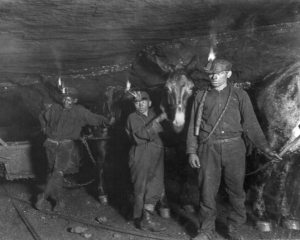In 1933, Eric Blair published his first book, "Down and Out In Paris and London", but the name on the cover was not Blair, but George Orwell, a pseudonym.

In the south, they built model villages with miniature collieries, miniature farms and miniature plough teams coming over the hill.











